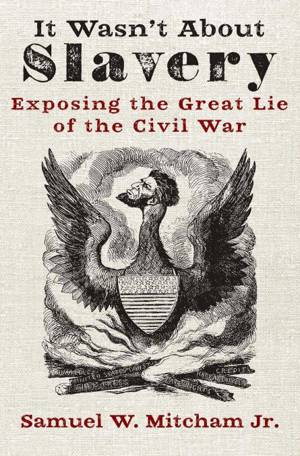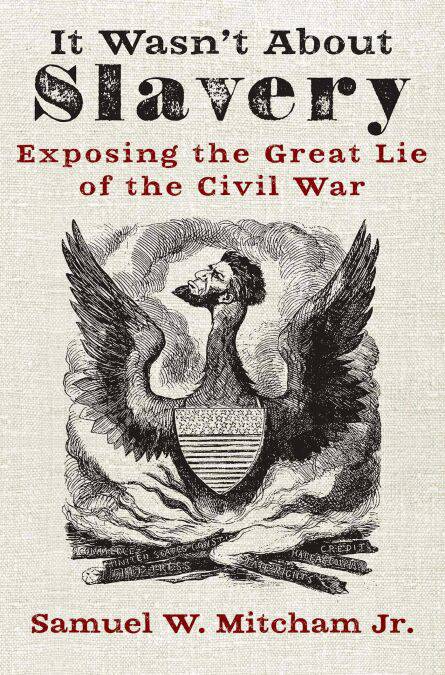
- Afhalen na 1 uur in een winkel met voorraad
- Gratis thuislevering in België vanaf € 30
- Ruim aanbod met 7 miljoen producten
- Afhalen na 1 uur in een winkel met voorraad
- Gratis thuislevering in België vanaf € 30
- Ruim aanbod met 7 miljoen producten
Zoeken
It Wasn't About Slavery E-BOOK
Exposing the Great Lie of the Civil War
Samuel W. Mitcham
E-book | Engels
€ 14,53
+ 14 punten
Omschrijving
The Great Lie of the Civil War
If you think the Civil War was fought to end slavery, you’ve been duped.
In fact, as distinguished military historian Samuel Mitcham argues in his provocative new book, It Wasn’t About Slavery, no political party advocated freeing the slaves in the presidential election of 1860. The Republican Party platform opposed the expansion of slavery to the western states, but it did not embrace abolition.
The real cause of the war was a dispute over money and self-determination.
Before the Civil War, the South financed most of the federal government—because the federal government was funded by tariffs, which were paid disproportionately by the agricultural South that imported manufactured goods.
Yet, most federal government spending and subsidies benefited the North. The South wanted a more limited federal government and lower tariffs—the ideals of Thomas Jefferson—and when the South could not get that, it opted for independence.
Lincoln was unprepared when the Southern states seceded, and force was the only way to bring them—and their tariff money—back. That was the real cause of the war.
A well-documented and compelling read by a master historian, It Wasn’t About Slavery will change the way you think about Abraham Lincoln, the Emancipation Proclamation, and the cause and legacy of America’s momentous Civil War.
If you think the Civil War was fought to end slavery, you’ve been duped.
In fact, as distinguished military historian Samuel Mitcham argues in his provocative new book, It Wasn’t About Slavery, no political party advocated freeing the slaves in the presidential election of 1860. The Republican Party platform opposed the expansion of slavery to the western states, but it did not embrace abolition.
The real cause of the war was a dispute over money and self-determination.
Before the Civil War, the South financed most of the federal government—because the federal government was funded by tariffs, which were paid disproportionately by the agricultural South that imported manufactured goods.
Yet, most federal government spending and subsidies benefited the North. The South wanted a more limited federal government and lower tariffs—the ideals of Thomas Jefferson—and when the South could not get that, it opted for independence.
Lincoln was unprepared when the Southern states seceded, and force was the only way to bring them—and their tariff money—back. That was the real cause of the war.
A well-documented and compelling read by a master historian, It Wasn’t About Slavery will change the way you think about Abraham Lincoln, the Emancipation Proclamation, and the cause and legacy of America’s momentous Civil War.
Specificaties
Betrokkenen
- Auteur(s):
- Uitgeverij:
Inhoud
- Aantal bladzijden:
- 240
- Taal:
- Engels
Eigenschappen
- Productcode (EAN):
- 9781621578772
- Verschijningsdatum:
- 13/01/2020
- Uitvoering:
- E-book
- Beveiligd met:
- Adobe DRM
- Formaat:
- ePub

Alleen bij Standaard Boekhandel
+ 14 punten op je klantenkaart van Standaard Boekhandel
Beoordelingen
We publiceren alleen reviews die voldoen aan de voorwaarden voor reviews. Bekijk onze voorwaarden voor reviews.











